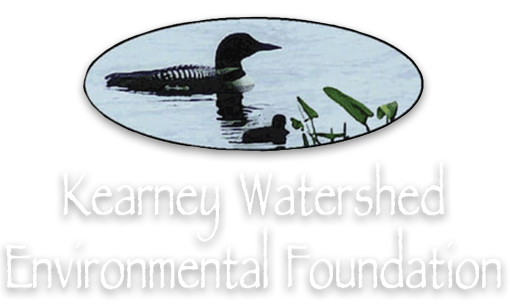March 2023 Newsletter
https://bit.ly/KWEFMar2023Newsletter
Included in this issue:
Floating Accommodations & Restrictions
Lake Partners Program 2023
Your Support for 2023
Floating Accommodations & Restrictions
The Ontario government is proposing to amend regulations under the Public Lands Act. The proposed amendments relate to camping on water over public lands. The amendments are intended to reduce the environmental and social impacts of floating accommodations and long camping stays.
Ontario’s Ministry of Natural Resources and Forestry is asking the public to weigh in on proposed changes to how floating accommodations should be used on the province’s waterways.
There has been an increase in the types of vessels being used for overnight accommodation, including floating structures that resemble cottages buoyed by Styrofoam. These floating accommodations are allowed to moor on provincial land as camping units, but they can’t reside on the same tract of public land permanently. They must move every 21 days.
In March 2022, the ministry sought feedback from the public, Indigenous communities, municipalities, and other stakeholders on how floating accommodations should be used on public lands covered by water. The majority of respondents stated that current rules were too permissive, citing concerns over impacts on water quality, wastewater management, noise pollution, and lack of building permits or property taxes, among other concerns.
Based on these responses, the province has proposed making changes to the conditions that must be met when camping on water. The biggest changes include reducing the number of days someone can camp on water in one location from 21 to seven, requiring them to move to a different location at least one kilometre away, prohibiting camping within 300 metres of a developed shoreline, and redefining camping units as watercraft primarily used for navigation, excluding house-like structures on floatation systems.
Currently, municipalities have no authority over the floating accommodations as they’re moored on provincial land. And when out on the water, which falls under federal jurisdiction, Transport Canada considers them vessels. As vessels, the floating accommodations must follow small craft construction standards, but they don’t require a building permit from the municipality they’re being built in. They also aren’t required to pay taxes in the areas they’re moored. Municipal fire and police services, as well as by-law enforcement and black and grey waste water disposal can become issues with these “vessels”.
Public feedback on the provincial government’s proposed changes to floating accommodations can be submitted, until April 11. Here is the link to submit feedback: https://ero.ontario.ca/notice/019-6590.
Source: Environmental Registry of Ontario: ero.ontario.ca & Cottage Life. www.cottagelife.com
Lake Partners Program: Spring 2023 Reminder
2023 test kits are on their way!
A reminder to all our readers who are part of the Lake Partner Program run by DESC, (Dorset Environmental Science Centre), which is part of MECP (Ministry of the Environment Conservation & Parks).
If you are expecting a kit this spring and don't receive it, be sure to contact DESC immediately as they may have accidently dropped you from their list. Please let us know as well.
If you decide to retire from the program and haven't recruited someone to take your place, please let us know, so that KWEF can find a replacement. Having an uninterrupted set of readings for each lake is very important when watching for trends. In the fall, we’d would also like to get a copy of the individual secchi disk readings you took during the summer for our records, so please keep a copy before sending the readings to DESC.
DESC just reports the average and we are interested in the actual variations over the summer. We would also like to hear of any increases in algae growth and their location that you might see. As usual, we will extract the TP (Total Phosphorous) Calcium and average Secchi Depth results for the lakes in the Kearney Watershed from the huge DESC Database and report this information in our WQM (Water Quality Monitoring) Report which you can access via our website, Newsletter or our soon to be set up Facebook page.
Stan Walker heads up this initiative and can be reached at stan.kwef@gmail.com, or (705) 636-9530, if you need to contact him directly.
Thank you for all your help with this valuable program!
Your Support for 2023
We’d love it if you could be a 2023 KWEF supporter - only $10. Every little bit helps!
We accept e-transfers at treasurer.kwef@gmail.com. Please send a separate email with your answer to your security question and please also include your name and email address, so that we can thank you and keep in touch.
